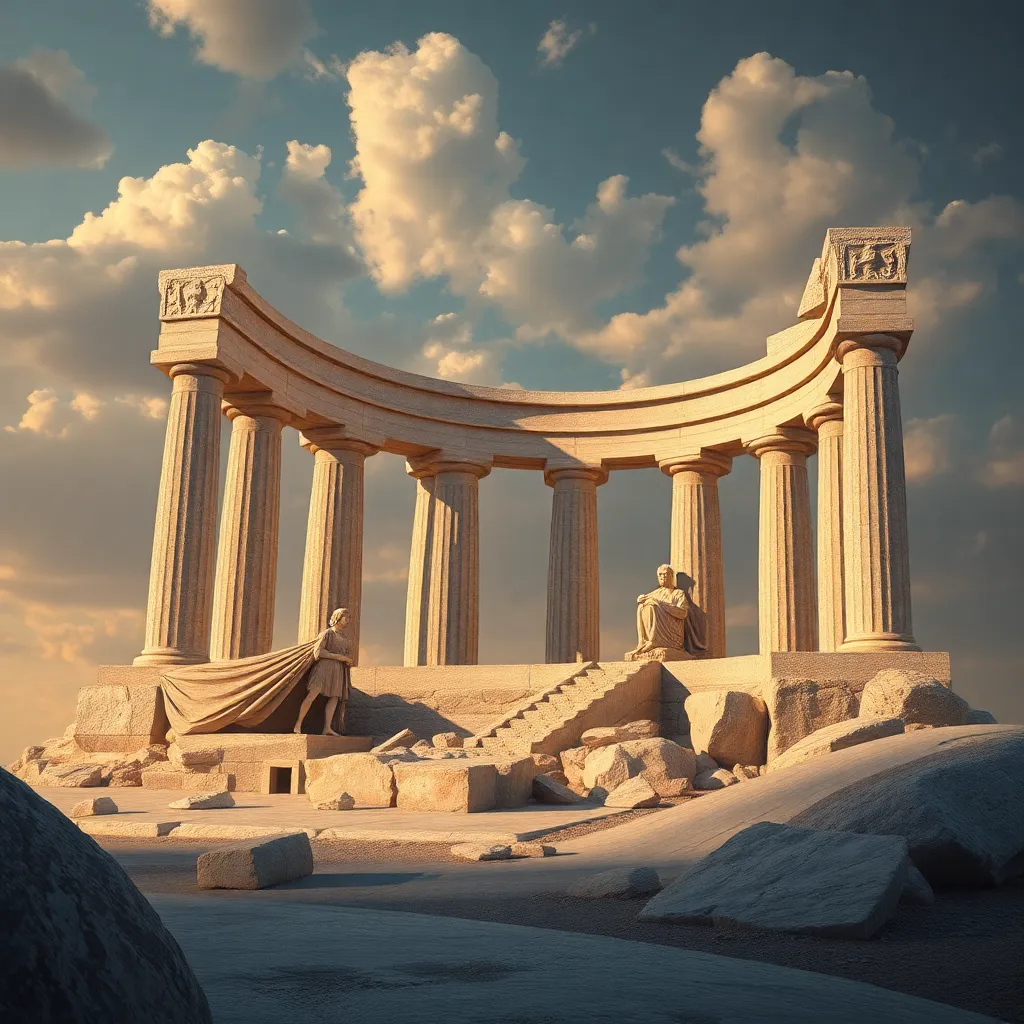The Iliad’s Influence on Modern Epic Narratives
I. Introduction
The Iliad, attributed to the ancient Greek poet Homer, stands as one of the cornerstones of Western literature. Composed in the 8th century BCE, this epic poem recounts the events of the Trojan War, particularly focusing on the wrath of Achilles. Its significance lies not only in its rich narrative and character depth but also in its profound exploration of themes such as heroism, honor, and the divine’s role in human affairs. The Iliad has left an indelible mark on literature, influencing countless works across various genres and eras.
This article aims to explore the influence of The Iliad on contemporary epic narratives, examining how this ancient text continues to resonate in modern storytelling through themes, structural elements, and character archetypes.
II. The Definition of Epic Narratives
Epic narratives are lengthy, grand tales that typically revolve around heroic deeds and events of significant cultural importance. They often encompass vast settings, involve a range of characters, and explore major themes of humanity. The characteristics of epic narratives include:
- High-stakes conflict, often involving gods or supernatural elements
- A central heroic figure who embodies the values of their culture
- A narrative that often begins in medias res (in the midst of action)
- Use of elevated language and poetic devices
Historically, epic storytelling has evolved from ancient oral traditions, such as those of the Mesopotamians and Greeks, to modern literary forms seen in novels, films, and other media.
III. Themes and Motifs in The Iliad
The Iliad is rich with themes and motifs that explore the complexities of the human experience. Some of the most prominent themes include:
A. Heroism and the Concept of the Hero
The Iliad presents a multifaceted view of heroism, exemplified through characters like Achilles and Hector. These figures embody the ideals of bravery, strength, and honor, yet also display vulnerability and moral dilemmas.
B. Honor, Glory, and the Human Condition
The pursuit of honor and glory is a driving force for many characters in The Iliad. This pursuit often leads to conflict and tragedy, reflecting the human condition’s complexities.
C. The Role of Fate and the Divine in Human Affairs
The interaction between fate and free will is a recurring motif in The Iliad. Characters frequently grapple with their destinies, often influenced by the whims of the gods, showcasing the tension between human agency and divine intervention.
IV. Direct Influences on Modern Epic Narratives
The influence of The Iliad can be found in numerous contemporary works, highlighting its lasting legacy. Some notable examples include:
A. Examples of Contemporary Works Inspired by The Iliad
- Literature: “The Song of Achilles” by Madeline Miller reimagines the relationship between Achilles and Patroclus, offering a modern take on the themes of love, honor, and tragedy.
- Film: The 2004 movie “Troy,” directed by Wolfgang Petersen, is a cinematic adaptation of the events described in The Iliad, focusing on the heroism and conflicts of the Trojan War.
B. Adaptations and Retellings in Various Mediums
Beyond literature and film, The Iliad has inspired adaptations in theater, graphic novels, and even video games, demonstrating its universal themes and appeal across different forms of media.
V. Structural Elements Borrowed from The Iliad
Modern epic narratives often borrow structural elements from The Iliad, utilizing various narrative techniques:
A. Narrative Techniques
- In Medias Res: Starting a story in the middle of the action creates immediate engagement, a technique used in both The Iliad and contemporary storytelling.
- Episodic Structure: The Iliad’s segmented storytelling allows for the exploration of multiple perspectives, a method mirrored in modern epics.
B. Use of Poetic Devices and Language in Modern Epics
The Iliad’s rich use of similes, metaphors, and elevated language has influenced modern authors to incorporate similar poetic devices to enhance their narratives and evoke emotional responses.
VI. The Iliad and the Evolution of Character Archetypes
The Iliad has significantly shaped character archetypes in modern storytelling, particularly in the development of the hero and anti-hero:
A. The Archetypal Hero and Anti-Hero in Modern Storytelling
Characters like Achilles serve as archetypes for modern heroes who embody both admirable traits and flaws, paving the way for complex characters in contemporary narratives.
B. Complex Characterizations Influenced by Homeric Figures
Modern storytelling often features characters with moral ambiguity and depth, reflecting the complexities found in figures like Hector and Achilles, who struggle with their roles in a larger conflict.
VII. The Global Influence of The Iliad
The reach of The Iliad extends beyond Western literature, impacting global storytelling traditions:
A. Cross-Cultural Adaptations and Interpretations
Numerous cultures have adapted the themes and narratives of The Iliad, incorporating them into their own storytelling traditions, showcasing its universal relevance.
B. The Iliad’s Impact on Non-Western Epic Narratives
Epic narratives from various cultures, such as the Indian Mahabharata or the African Epic of Sundiata, reflect similar themes of heroism, fate, and moral conflict, indicating a shared human experience.
VIII. Conclusion
The Iliad’s enduring legacy on modern epics is a testament to its profound impact on storytelling across centuries. Its exploration of timeless themes such as heroism, honor, and the intricate interplay between fate and free will continues to resonate in contemporary narratives. As we navigate the complex landscape of modern storytelling, the influence of The Iliad remains a vital thread, reminding us of the power of epic narratives to explore the human condition in all its glory and tragedy.
In reflecting on the relevance of epic narratives today, we recognize that the stories we tell are often shaped by those that came before, and The Iliad stands as a monumental pillar in the grand narrative of human storytelling.




